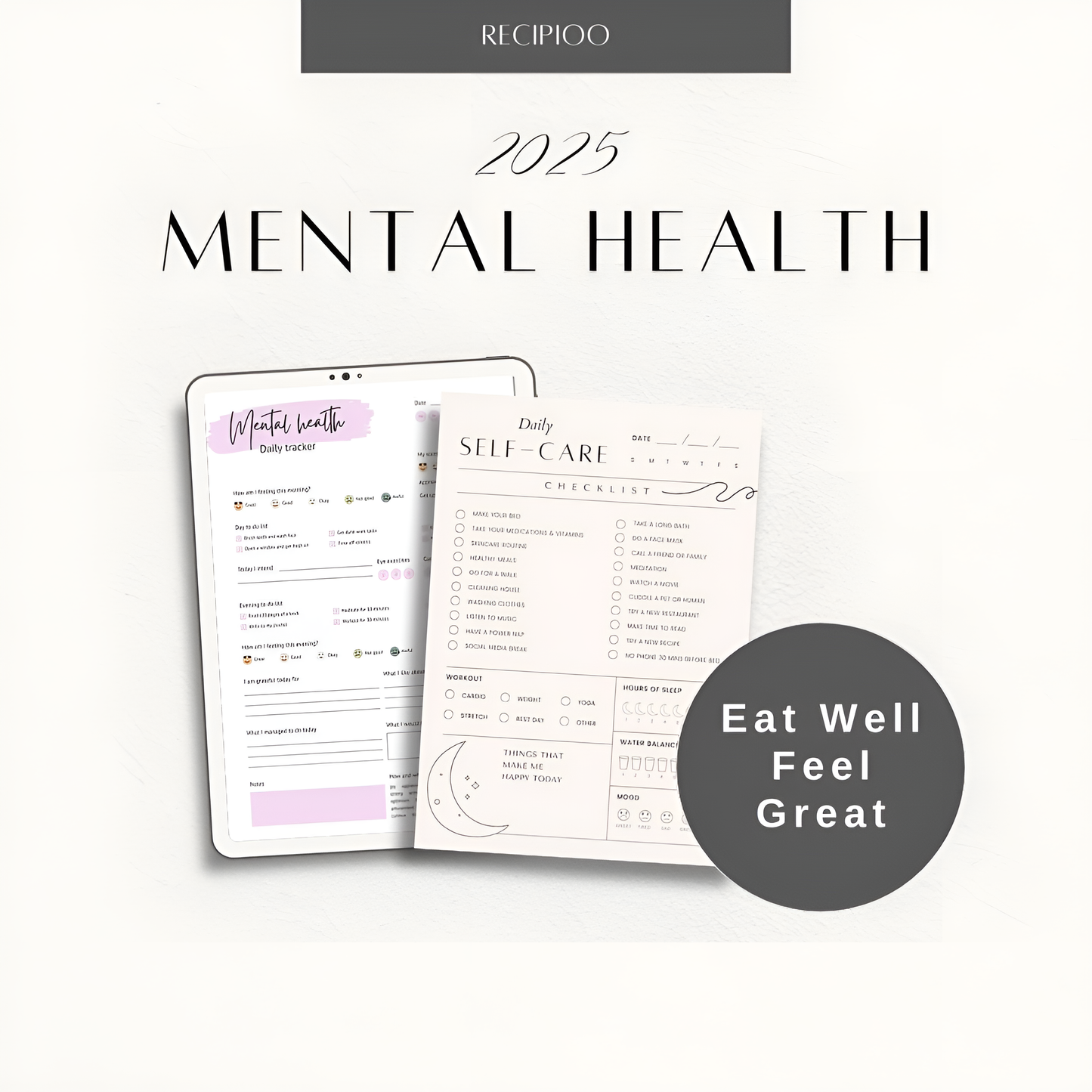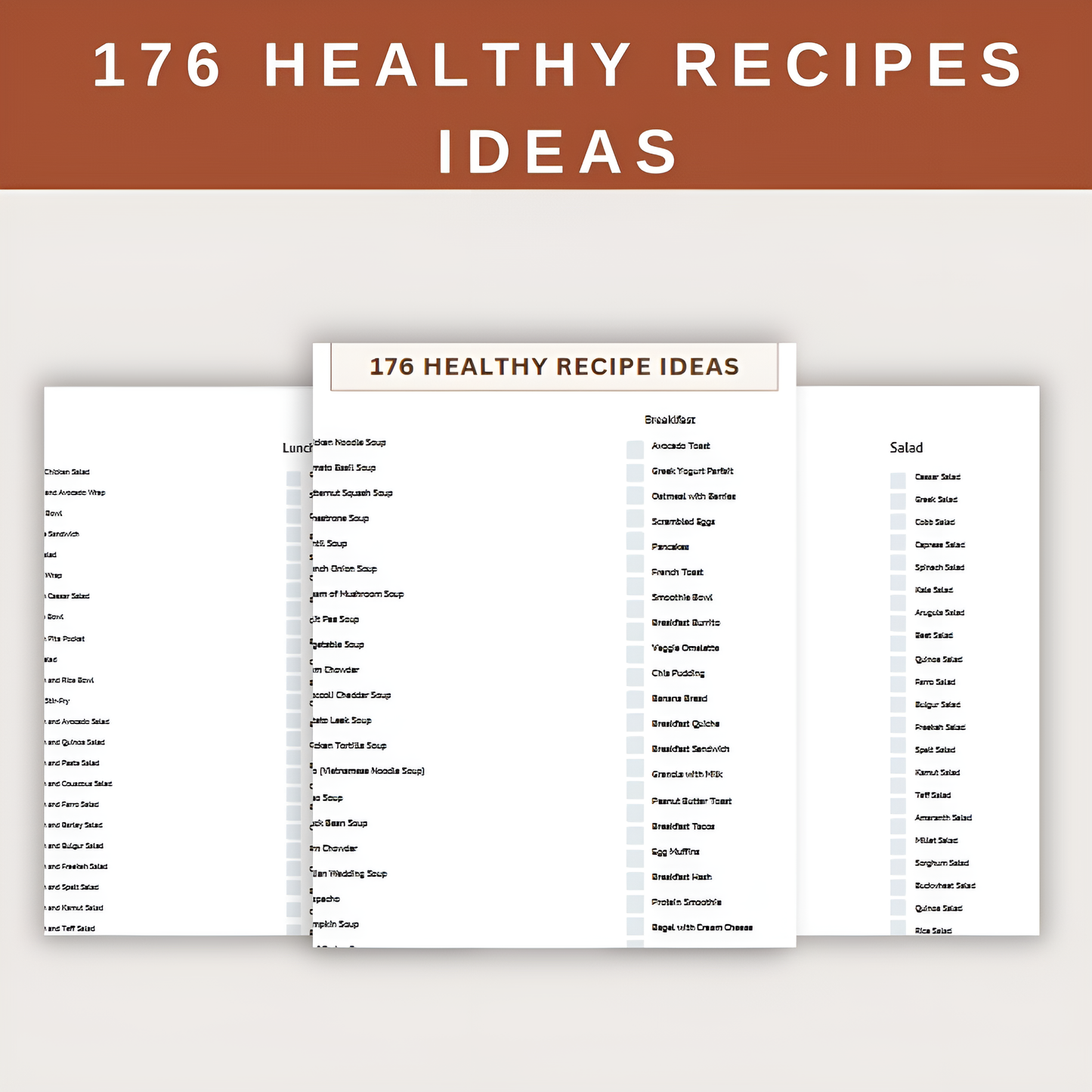
How Long Does It Take Food to Digest?
Share

Ever wonder why you feel hungry shortly after a light snack but stay full for hours after a heavy meal? The answer lies in how long it takes food to digest—a process that varies depending on what you eat, your metabolism, and even your lifestyle.
Digestion is your body’s way of breaking down food into nutrients, absorbing what it needs, and eliminating the rest. Understanding this process helps you make better dietary choices, avoid discomfort, and optimize your gut health.
The Digestion Process: A Step-by-Step Timeline
Understanding how long it takes food to digest requires knowing what happens at each stage of your digestive system. Let's walk through this fascinating process:
Mouth (0-5 Minutes) - Where Digestion Begins
The moment food enters your mouth, digestion kicks into gear. Here's what happens:
- Your teeth mechanically break down food into smaller pieces
- Saliva moistens food for easier swallowing
- The enzyme amylase starts breaking down carbohydrates
- Taste buds send signals to prepare your stomach for incoming food
Pro Tip: Chewing each bite 20-30 times significantly improves digestion by giving enzymes more surface area to work on.
Stomach (2-4 Hours) - The Acid Bath
Your stomach is where the real breakdown begins:
- Powerful gastric acids (pH 1.5-3.5) start protein digestion
- Muscular contractions churn food into a semi-liquid called chyme
- The pyloric sphincter regulates how quickly chyme enters the small intestine
Did You Know? Liquids pass through your stomach in 20-30 minutes, while a high-fat meal can take 4+ hours to process.
Small Intestine (3-5 Hours) - Nutrient Central
This 20-foot long tube is where most absorption occurs:
- Pancreatic enzymes break down fats, proteins, and carbs
- Bile from your liver emulsifies fats for absorption
- Villi (tiny finger-like projections) absorb nutrients into your bloodstream
Key Fact: About 90% of nutrient absorption happens in your small intestine.
Large Intestine (10-59 Hours) - The Final Stage
What remains moves to your colon for final processing:
- Water and electrolytes get reabsorbed
- Gut bacteria ferment remaining fiber
- Waste material forms into stool
- Muscular contractions (peristalsis) move stool toward elimination
Total Digestion Time: From the moment you take a bite to elimination typically takes 24-72 hours, depending on:
- What you ate
- Your metabolism
- Your activity level
- Your individual biology
Interesting Variation: Women's digestion tends to be slightly slower than men's, averaging about 47 hours compared to men's 33 hours.
How Different Foods Affect Digestion Time
What you eat dramatically impacts how long food takes to digest. While the average digestion process lasts 24-72 hours, specific foods can speed up or slow down this timeline. Let's break down the three main categories:
Fast-Digesting Foods (1-3 Hours) - Quick Energy Boosters
These foods race through your system, providing rapid (but short-lived) energy:
Common Examples:
- Watermelon (20-30 minutes)
- Oranges and most fruits (30-45 minutes)
- White bread and refined carbs (2-3 hours)
- Fruit juices and sugary snacks (1-2 hours)
Why They Digest So Quickly:
- Contain simple sugars that require minimal breakdown
- Low in fiber and fat
- Mostly liquid or semi-liquid consistency
- Minimal protein content
Best For: Pre-workout snacks or quick energy needs
Watch Out For: Blood sugar spikes and subsequent crashes
Moderate-Digesting Foods (3-6 Hours) - The Balanced Approach
These form the backbone of most satisfying, nutritious meals:
Common Examples:
- Skinless chicken breast (3-4 hours)
- White fish like cod (3-4 hours)
- Cooked vegetables (4-5 hours)
- Eggs (3-4 hours)
- Brown rice and quinoa (4-5 hours)
Digestion Dynamics:
- Moderate protein content requires more stomach acid
- Some fiber content slows gastric emptying
- Complex (but not overly complex) carbohydrate structures
- Minimal fat content
Ideal For: Main meals that keep you satisfied for hours
Pro Tip: Combine with healthy fats for optimal nutrient absorption
Slow-Digesting Foods (6+ Hours) - The Marathoners
These foods stick with you, sometimes uncomfortably so:
Common Examples:
- Fatty cuts of beef (6-8 hours)
- Whole milk dairy products (5-7 hours)
- Nuts and seeds (5-6 hours)
- Beans and legumes (6-8 hours)
- Whole grain breads and pastas (5-6 hours)
Why They Take So Long:
- High fat content requires extensive bile processing
- Complex protein structures (especially in red meat)
- Dense fiber content in plant-based options
- Some contain difficult-to-digest compounds (like lactose or lectins)
Best For: Occasional consumption or when needing prolonged fullness
Caution: May cause discomfort if eaten late at night or in large quantities
Key Insight: Your digestion time isn't just about the food itself, but how you combine foods. A salad with olive oil, chicken, and avocado will digest differently than each component alone. For optimal digestion, consider food combining principles and listen to your body's responses.
Key Factors That Influence Digestion Speed
Understanding how long food takes to digest requires looking beyond just what you eat. These five critical factors determine your personal digestion timeline:
Food Composition - The Building Blocks of Digestion
What's on your plate directly impacts digestion time:
Fiber: Soluble fiber (oats, apples) slows digestion, while insoluble (whole grains, veggies) adds bulk
Fat: High-fat meals (fried foods, cheese) take 2-3x longer to digest than lean proteins
Protein: Animal proteins digest slower than plant-based (6-8 hrs vs 3-4 hrs)
Processing: Refined foods digest faster than whole foods
Pro Tip: Combine fast and slow-digesting foods for balanced energy (ex: fruit with nuts).
Metabolism - Your Body's Engine
Your metabolic rate significantly affects how long digestion takes:
Age: Digestion slows about 30% between ages 20-70
Thyroid function: Hypothyroidism can double digestion time
Activity level: Athletes digest 20-30% faster than sedentary individuals
Body composition: More muscle mass = faster metabolism
Did You Know? Your metabolism fluctuates 8-10% throughout the day, peaking around noon.
Gut Health - The Microbiome Factor
Your digestive ecosystem determines efficiency:
- Probiotics (yogurt, kefir) improve breakdown by 15-20%
- Conditions like IBS can alter transit time by 50%
- Enzyme production declines with age and stress
- Gut inflammation can slow digestion significantly
Solution: Incorporate fermented foods and consider digestive enzymes if needed.
Hydration & Lifestyle - The External Influencers
Daily habits impact food digestion time:
Water intake: Just 3% dehydration can cause constipation
Stress levels: Chronic stress slows digestion 30-40%
Sleep quality: Poor sleep disrupts gut motility
Meal timing: Late-night eating slows overnight digestion
Quick Fix: Drink 16oz water 30 minutes before meals for optimal digestion.
Individual Differences - Your Unique Biology
Even identical meals digest differently person-to-person:
Genetics: Some naturally produce more digestive enzymes
Chewing habits: Proper chewing can cut digestion time by 25%
Meal size: Large meals take proportionally longer to process
Gender: Women's digestion averages 14 hours longer than men's
Action Step: Track your personal digestion patterns after different meals.
Common Digestion Problems & Solutions
Now that you understand how long food takes to digest, let's troubleshoot common issues:
Bloating/Gas - The Uncomfortable Reality
Causes:
- Legumes and cruciferous veggies (releasing intestinal gas)
- Carbonated drinks (introducing excess air)
- Food intolerances (lactose, gluten)
- Eating too quickly (swallowing air)
Solutions:
- Sip peppermint or ginger tea
- Take digestive enzymes with meals
- Try the low-FODMAP diet if chronic
- Practice mindful eating (no screens!)
Constipation - When Things Slow Down
Causes:
- Insoluble fiber without enough water
- Dehydration
- Lack of movement
- Certain medications
Quick Fixes:
- ✓ Drink warm lemon water first thing
✓ Eat prunes or kiwi (nature's laxatives)
✓ Try magnesium citrate supplement
✓ Do 5 minutes of core twists after meals
Diarrhea (Fast Digestion) - The Rush Job
Causes:
- Food poisoning
- Viral infections
- Certain medications
- Anxiety/stress
BRAT Diet Solution:
- ✓ Bananas (potassium)
✓ Rice (binding)
✓ Applesauce (soluble fiber)
✓ Toast (simple carbs)
Slow Digestion - The Heavy Feeling
Causes:
- High-fat meals
- Low stomach acid
- Sedentary lifestyle
- Dehydration
Proven Hacks:
- ✓ 10-minute post-meal walk
✓ Apple cider vinegar before meals
✓ Smaller, more frequent meals
✓ Abdominal massage (clockwise)
Remember: While these solutions help occasional issues, persistent digestive problems warrant medical attention. Track your symptoms and how long your food takes to digest to identify patterns.
How to Improve Digestion Naturally
want to optimize how long your food takes to digest? These five science-backed strategies will help your body process food more efficiently and comfortably.
Eat Mindfully - Slow Down to Speed Up Digestion
Your digestion begins before the first bite - here's how to do it right:
- Chew Thoroughly
- Aim for 20-30 chews per bite
- Reduces food particle size by 60%
- Allows enzymes to work more effectively
- Avoid Overeating
- Stop at 80% fullness
- Use smaller plates to control portions
- Pause halfway through meals to check hunger
- Eliminate Distractions
- No screens during meals
- Sit at a table (not standing or driving)
- Focus on flavors and textures
Pro Tip: Try the "chopstick method" - eating with utensils that force slower consumption.
Stay Hydrated - The Liquid Advantage
Proper hydration affects how long food takes to digest more than you realize:
- Optimal Water Intake
- Drink 1/2 your body weight (lbs) in ounces daily
- Example: 150 lb person = 75 oz water
- Add electrolytes for better absorption
- Best Times to Drink
- 16 oz upon waking
- 30 minutes before meals
- Between meals (not during)
- Avoid These Digestive Disruptors
- Alcohol (dehydrates intestinal lining)
- Caffeine (speeds transit time too much)
- Sugary drinks (feed bad gut bacteria)
Hydration Hack: Add cucumber or lemon slices to make water more appealing.
Prioritize Fiber - Nature's Digestive Broom
Not all fiber is created equal when it comes to digestion time:
- Soluble Fiber (slows digestion)
- Oats, apples, chia seeds
- Forms gel-like substance
- Great for diarrhea
- Insoluble Fiber (speeds digestion)
- Whole grains, leafy greens
- Adds bulk to stool
- Helps constipation
- Daily Targets
- Men: 30-38 grams
- Women: 21-25 grams
- Increase gradually to avoid bloating
Fiber Power Combo: Mix ground flaxseed into yogurt for soluble and insoluble benefits.
Probiotics & Fermented Foods - Your Gut's Best Friends
A healthy gut microbiome optimizes how long food takes to digest:
- Top Probiotic Foods
- Plain yogurt (look for "live cultures")
- Kefir (30+ strains of bacteria)
- Sauerkraut (unpasteurized)
- Kimchi (Korean fermented veggies)
- Kombucha (fermented tea)
- Dosage Matters
- 1 serving daily for maintenance
- 2 servings when recovering from antibiotics
- Take with prebiotics (garlic, onions)
- Signs It's Working
- Less bloating after meals
- More regular bowel movements
- Reduced food sensitivities
Starter Tip: Begin with 1/4 cup fermented foods daily and increase slowly.
Exercise & Posture - Move Your Food Along
Physical activity significantly impacts digestion time:
- Best Post-Meal Movements
- 10-minute walk (stimulates peristalsis)
- Gentle yoga twists (aids elimination)
- Standing desk (better than sitting)
- Positions to Avoid
- Lying down within 2 hours of eating
- Slouching at the table
- Tight waistbands during meals
- Exercise Sweet Spot
- 30 minutes moderate activity daily
- Core work improves digestion
- Excessive cardio can slow digestion
Posture Fix: Try the "digestive squat" - heels down, knees apart for 30 seconds.
Final Thought: Implementing even 2-3 of these strategies can dramatically improve how long your food takes to digest. Start with one change this week, then gradually incorporate others. Your gut will thank you!
FAQs About How Long Does It Take Food to Digest
Does drinking water speed up digestion?
The Answer: Yes, but timing matters.
Between meals: Water keeps stools soft and moves food through your intestines faster
During meals: Large amounts dilute stomach acid, potentially slowing protein breakdown
Optimal approach:
- Drink 1 glass 30 minutes before meals
- Sip small amounts with food if needed
- Hydrate well between meals
Pro Tip: Warm water in the morning stimulates digestion better than cold.
Why does meat take longer to digest than fruit?
The Science Behind It:
| Meat | Fruit |
| Complex protein structures | Simple sugar molecules |
| Requires strong stomach acid | Needs minimal breakdown |
| Fat content slows processing | Water content speeds transit |
| 6-8 hour digestion time | 30-60 minute digestion |
Key Point: Your body works 5x harder to digest a steak than a watermelon.
Can stress affect digestion?
The Gut-Brain Connection:
When stressed:
- Blood shifts away from digestive organs
- Enzyme production decreases by 40-60%
- Stomach emptying slows dramatically
- Gut bacteria balance changes
Physical Signs You'll Notice:
- Butterflies" in stomach
- Sudden diarrhea before events
- Loss of appetite when anxious
- Increased acid reflux
Stress-Busting Solutions:
- Practice diaphragmatic breathing before meals
- Try 10 minutes of meditation daily
- Chew gum to stimulate digestive juices
- Avoid eating when extremely stressed
How can I tell if my digestion is too slow/fast?
Diagnosing Your Digestion Speed:
Signs of Slow Digestion:
- Bowel movements less than 3x/week
- Frequent bloating after meals
- Feeling full for 6+ hours after eating
- Visible food particles in stool
Signs of Fast Digestion:
- Urgent need to go after eating
- Loose stools 3+ times daily
- Undigested food in stool
- Rapid hunger after meals
When to See a Doctor:
- Persistent symptoms lasting 2+ weeks
- Unexplained weight changes
- Blood in stool
- severe pain with eating
Tracking Tip: Keep a food/symptom journal for 2 weeks to identify patterns in how long your food takes to digest.
Final Thought: Your digestion is as unique as your fingerprint. What's normal for others might not be normal for you. Listen to your body's signals and adjust your habits accordingly.
RECIPIOO SOURCES
At Recipioo, we are committed to providing you with reliable, well-researched, and trustworthy content. Our team follows rigorous sourcing guidelines, drawing from reputable studies, expert insights, and credible sources to ensure the accuracy and integrity of our information. We believe in empowering you with knowledge you can trust, whether it’s about nutrition, recipes, or healthy living.











